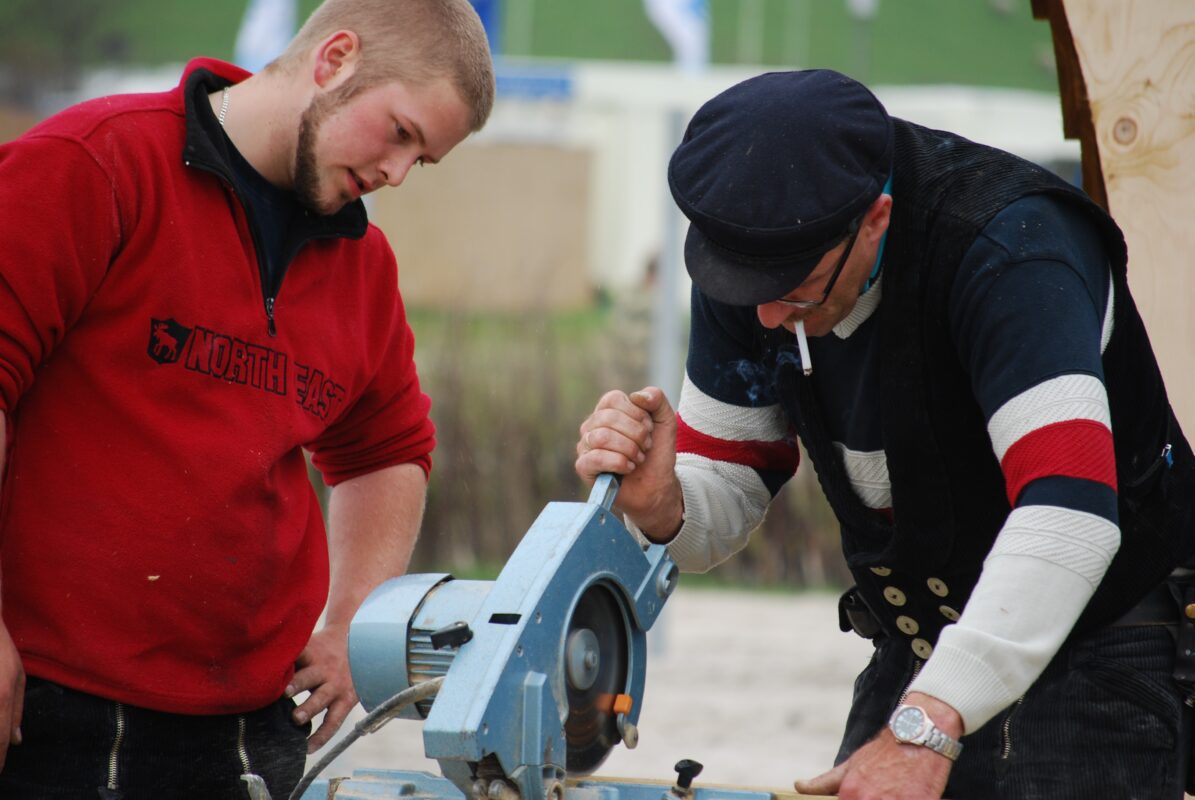Despite what you may think, manual labor can be a viable alternative to a desk job. For starters, it is significantly less stressful than an office job, given that the skill requirements for performing it tend to be quite low. Moreover, any sort of manual work is essentially a freely available exercise to your body – something that your typical desk jockey simply doesn’t have enough time for. Finally, some types of manual labor actually help you develop incredibly useful skills that you can later use outside of work – a construction worker, unlike, say, a stockbroker, will have the necessary skill set to build themselves a safe and rugged garden shed.
Bear in mind, however, that everything has two sides to the coin. To put it simply, the manual labor environment is always going to be much more unpredictable than the one in the office, resulting in frequent accidents. Fortunately, there are several ways in which you can significantly decrease the chances of injury or worse while doing manual work, including always wearing PPE, never attempting to lift extremely heavy loads, taking frequent breaks, and even doing some warm-up exercises before working. Read on and learn that manual labor can be not only rewarding but also safe!
Always Use Personal Protective Equipment
There is no work in which you can afford to not use any safety equipment. This is especially true when it comes to manual labor, as the risk of hurting yourself is much higher here than in an office setting. Keep the following PPEs close by and always wear them when working:
- Safety glasses – these should protect your eyes from any hazards that you may encounter on the job site. They are one of the most important PPEs that you need to wear, so don’t forget to put them on!
- Protective clothing – any kind of clothing that provides some level of protection to your body is worth wearing. It can be a jacket, gloves, or even pants. If something sharp falls on your leg, for example, a pair of jeans will provide some protection.
- Steel-toed boots – these are a must-have if you are working with heavy tools and equipment. If you step on something sharp or hard, they will protect your feet from getting injured.
- Hearing protection – this is recommended if you are going to be doing something noisy (i.e., sawing wood). Wearing earplugs will help prevent any hearing damage from taking place.
If you are working with heavy machinery and equipment, make sure that you also wear a helmet and a pair of goggles. If your employer does not provide these, it is a strong reason to consider changing jobs – or suing the company if something happens. In that case, personal injury settlement and lawsuit funding can help you recover tens of thousands of dollars in lost wages, medical bills, and pain and suffering compensation.
Never Attempt To Lift Extremely Heavy Loads
This is one of the biggest mistakes that people make in manual labor. It’s understandable that you want to finish as quickly as possible and lift as much as your body can handle, but keep in mind that if you are unable to do it correctly, you may end up hurting yourself. If you aren’t sure if you should lift something or not, ask for assistance from another worker. Even better, try to find a trolley and use it to move the load safely and efficiently.
Take Frequent Breaks
Even when you are working out in the open, it’s crucial to take breaks as often as you can. This will not only help you stay safe, but it will also improve your productivity. Physically demanding work can result in muscle strain and fatigue if you don’t make time to rest. Remember – there’s nothing wrong with taking a break every now and then!
Do Some Warm-Up Exercises Before Working
The last thing that you want is to injure yourself while doing manual labor. It is important to stretch first, warm up your muscles and joints, and increase your overall body temperature. If you do this before starting your work, you should be safe from any possible injuries. Be sure to stretch at least 15 minutes before doing anything physical.
Conclusion
Manual labor is an excellent opportunity for anyone who wants to engage in physical activity or simply get away from their desk job for a bit. However, it’s important to keep in mind that there is always a certain degree of risk involved in doing manual work, especially if you aren’t properly prepared for it.
In order to stay safe and healthy, always wear PPEs (i.e., safety glasses, protective clothing, steel-toed boots, etc.), never attempt to lift extremely heavy loads, take frequent breaks during your work and do some warm-up exercises before beginning. With these safety tips in mind, you’ll be able to enjoy working manually while staying safe and sound! Good luck!
